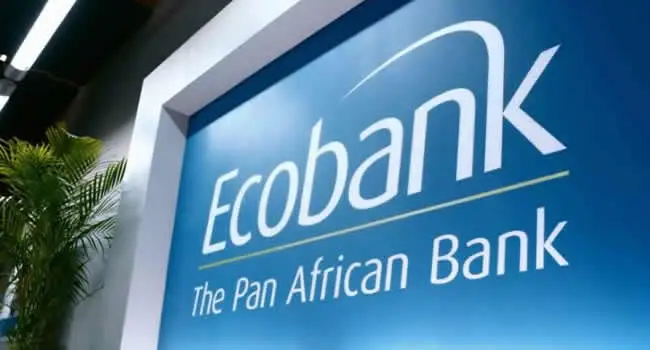Judiciary
Court orders Ecobank to pay Honeywell N72.2bn, after eight-year legal battle

Court orders Ecobank to pay Honeywell N72.2bn, after eight-year legal battle
Following its eight years legal battle with Ecobank Nigeria, Honeywell Flour Mills (HFMP) has been awarded N72.2 billion in damages by Justice Mohammed Liman of the Federal High Court, Lagos.
Justice Liman, who presided over the case, granted the requests of Honeywell Flour against Ecobank on Tuesday in the legal battle that started after the lender refused the manufacturer access to its accounts in 2015.
Honeywell Flour’s accounts were frozen in November 2015 when Ecobank secured an ex parte order, which was granted on the condition that the financial institution will compensate the former for harm or loss caused by the action.
Ecobank had shut Honeywell Flour out of their accounts in an attempt to wind up the latter over an alleged outstanding debt owed by the manufacturer.
Recall that Ripples Nigeria reported that Ecobank alleged Honeywell Group, former owner of Honeywell Flour, owes the company N13.5 billion, as outstanding debt.
The lender has also moved to block Oba Otudeko, Honeywell Group’s founder, from becoming the largest shareholder of FBN Holdings in a bid to recover the alleged debt.
Read Also: EFCC Kicks Against Court Order Permitting Ex-Anambra Governor Obiano to Travel Abroad
Meanwhile, due to the losses Honeywell Flour claimed following the freezing of its company account, Justice Liman ordered Ecobank to pay the company N72.2 billion in damages.
The damage fee is 23 per cent of Ecobank’s first quarter turnover in 2023 when the company generated N313.17 billion.
Loss of revenue and interest on unutilised cash balances are some of the reasons claimed to have caused the losses. Also listed are foreign exchange devaluation, aggravated and exemplary damages.
Liman told the parties involved in the case that: “The plaintiff was denied the use of funds in his account based on the ex parte order granted in favour of the defendant. It is therefore my firm view that the plaintiff (Honeywell) is entitled to the amount claimed… The argument of the defendant in his written address is therefore not acceptable as the contents of the document are the best evidence and they speak for themselves.”
The judge also condemned Ecobank’s lawyer for being ignorant of the law relating to the ex parte order, “the purpose of an undertaking to pay damages has been held in a legion of cases to indemnify the party for the losses he may suffer on the bases of an ex parte order.
“Note that Rule 4 of the Winding Up Rules provides that all applications which affect the rights of parties in a winding-up proceeding must be made on notice.
“The provisions of the winding up rules are very clear and unambiguous. The defendant cannot claim ignorance of this provision as ignorance of the law is no excuse and it is even more inexcusable if it is committed by a lawyer. The ex parte application was therefore made ultra vires,” he said.
Court orders Ecobank to pay Honeywell N72.2bn, after eight-year legal battle
Judiciary
Court discharges man accused of burning father’s house in Abuja

A Chief Magistrates’ Court in Bassa, Abuja, on Friday discharged a 28-year-old man, Hamza Azizz, who was accused of setting his father’s house on fire in Bassa Village.
The Chief Magistrate, Abdulrazaq Eneye, released the defendant after he had spent three weeks at the Kuje Correctional Center.
Eneye also ordered Azizz to undergo counselling and warned him against committing similar offences in the future.
“The court can now discharge you into society after assessing your mental state through the correctional center,” the magistrate ruled.
Azizz expressed remorse for his actions, pleaded for leniency, and vowed to stay away from drugs.
The prosecution counsel, Mr A. Aliyu, told the court that the defendant had poured kerosene on his father’s body before also dousing the house with kerosene and setting it ablaze.
The father later reported the incident to the police in Bassa Village.
Azizz was charged with mischief and criminal intimidation, offences that contravene Sections 327 and 397 of the Penal Code.
Judiciary
Nnamdi Kanu apologises over attacks on judge, others

Nnamdi Kanu, the leader of the proscribed Indigenous People of Biafra (IPOB), on Friday, tendered an apology over his recent attacks on the Federal High Court and Justice Binta Nyako.
Kanu, through his new counsel and former Attorney-General of the Federation (AGF) and Minister of Justice, Chief Kanu Agabi, SAN, also apologised to the Federal Government’s lawyer, Chief Awomolo, SAN.
The IPOB leader equally apologised to his team of lawyers earlier led by Aloy Ejimakor for also attacking them while before Justice Nyako.
Kanu tendered the apology through his lead counsel, Chief Agabi, before Justice James Omotosho, the new trial judge.
Upon resumed trial, Agabi sought the court’s permission to deliver a message on Kanu’s behalf.
He said he had already discussed the development with the lawyer to the prosecution and Justice Omotosho granted the application.
The News Agency of Nigeria (NAN) reports that Justice Omotosho had fixed March 21 for the trial of Kanu.
The judge fixed the date after the case file was transferred to him.
Kanu, who was brought back to the country in June 2021 from Kenya, was expected to take his plea as the case begins afresh (de novo).
NAN reports that the Chief Judge (CJ) of FHC, Justice John Tsoho, had, in a letter dated March 4 and addressed to Kanu’s lead counsel, Mr Aloy Ejimakor, communicated the re-assignment of the case from Justice Binta Nyako to Justice Omotosho.
The re-assignment followed the demand by Kanu and his team of lawyers for the transfer of the seven-count terrorism charge to another judge, after alleging bias.
Justice Nyako, on Sept. 24, 2024, withdrew from the case and sent the case file to the CJ of FHC for re-assignment.
The judge said she could not proceed with a trial where a defendant lacked confidence in the court.
However, the CJ sent Kanu’s case file back to Justice Nyako for adjudication, insisting that a formal application must be made by the defence before the recusal could be accepted.
But Kanu and Ejimakor, on Feb. 10, insisted that Justice Nyako no longer had jurisdiction to preside over the case after her recusal (withdrawal) from the matter, prompting the judge to adjourned the case indefinitely (sine die).
NAN reports that Justice Ahmed Mohammed (who has been elevated to Appeal Court) and Justice Tsoho (before becoming the CJ) had presided over Kanu’s trial before it was assigned to Justice Nyako, following the defendant’s rejection of the two judges.
Headlines
Supreme Court nullifies Rivers LG elections

The Supreme Court on Friday, nullified the Local Government election in Rivers State, which was conducted on Oct. 5, 2024.
A five-member panel of the apex court unanimously held that the election was conducted in violation of relevant laws.
Justice Jamilu Tukur, in the lead judgment, agreed with the appellant, the All Progressives Congress (APC), that conditions precedent were not complied with before the Rivers State Independent Electoral Commission (RSIEC) held the election.
Justice Tukur held that there was no evidence that the voters’ registration continued until 90 days before the election and that the requisite notices were issued as required by law.
-

 Headlines4 years ago
Headlines4 years agoFacebook, Instagram Temporarily Allow Posts on Ukraine War Calling for Violence Against Invading Russians or Putin’s Death
-

 Headlines4 years ago
Headlines4 years agoNigeria, Other West African Countries Facing Worst Food Crisis in 10 Years, Aid Groups Say
-

 Foreign4 years ago
Foreign4 years agoNew York Consulate installs machines for 10-year passport
-

 News1 year ago
News1 year agoZero Trust Architecture in a Remote World: Securing the New Normal
-

 Entertainment3 years ago
Entertainment3 years agoPhyna emerges winner of Big Brother Naija Season 7
-

 Headlines1 year ago
Headlines1 year agoNigeria Customs modernisation project to check extortion of traders
-

 Entertainment2 years ago
Entertainment2 years agoMovie download platform, Netnaija, announces closure
-

 Economy2 years ago
Economy2 years agoWe generated N30.2 bn revenue in three months – Kano NCS Comptroller












